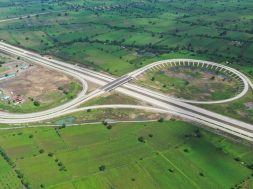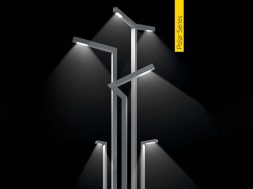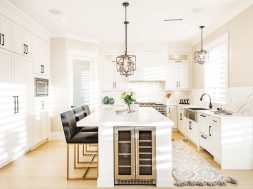Transforming building practices for a greener future
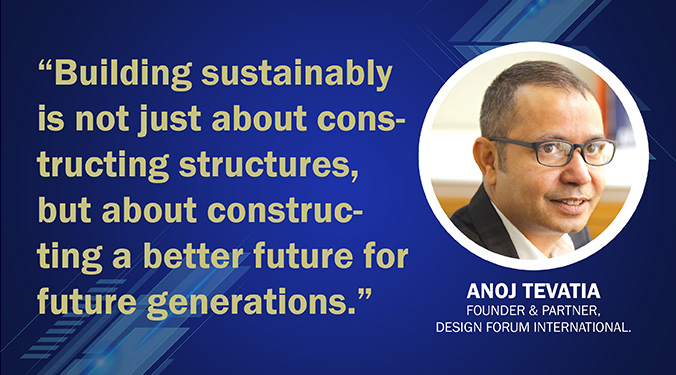
“Building sustainably is not just about constructing structures, but about constructing a better future for future generations.” Anoj Tevatia, Founder & Partner, Design Forum International.
Adopting sustainable building practices faces several challenges and obstacles. Limited awareness and understanding among architects, builders, and the general public hinder widespread adoption. Increasing education and awareness about sustainable construction is crucial. Cost considerations are also challenging, as sustainable materials and technologies often incur higher upfront costs. Bridging the gap between initial costs and long-term savings is essential. The absence of strict regulations and insufficient incentives further hinder adoption. Overcoming these challenges requires a collaborative effort from governments, industry professionals, and the public.
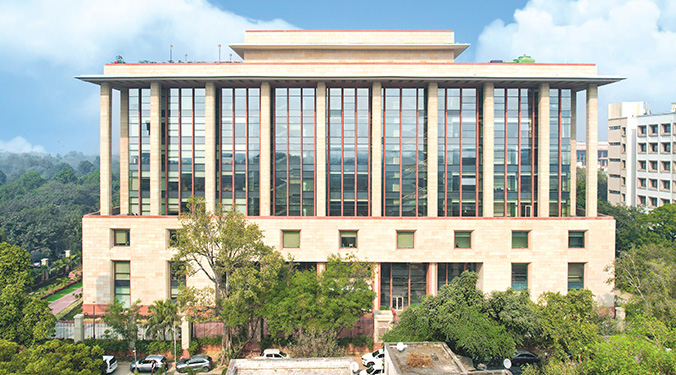
Sustainable buildings effectively address resource conservation and waste reduction. They optimise energy and water usage through design strategies, reduce overall consumption, and employ water-efficient fixtures and innovative practices like greywater recycling. Using recycled, recyclable, low-impact materials and waste management, plans minimises construction and operational waste. Energy efficiency is prioritised with energy-efficient appliances, lighting systems, insulation, and HVAC systems, lowering energy demand and carbon emissions. Considering materials’ environmental impact throughout their lifecycle ensures a holistic approach to sustainability.
Renewable energy sources play a vital role in sustainable buildings, reducing reliance on fossil fuels and minimising emissions. Solar panels generate electricity and heat water, wind turbines harness wind power, geothermal energy taps into the Earth’s heat, and biomass energy is derived from organic waste or crops. Integrating renewable energy into building design creates self-sufficient and energy-efficient structures, advancing sustainability and environmental stewardship.
Green building standards and certifications require or encourage key features and practices. Energy efficiency, water conservation, sustainable materials, indoor environmental quality, site and location considerations, waste management, life cycle assessment, and renewable energy integration are commonly emphasised. These standards demonstrate a commitment to resource efficiency, occupant well-being, and environmental stewardship.
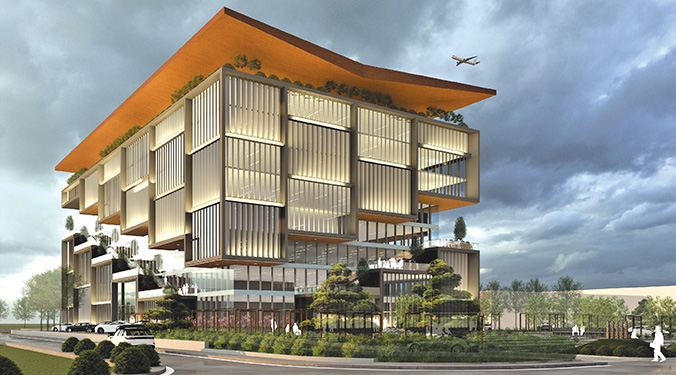
The challenges of adopting sustainable building practices include limited awareness, cost considerations, and the absence of strict regulations. Sustainable buildings address resource conservation and waste reduction through efficient resource utilisation, the use of recycled materials, and waste management plans. Renewable energy sources reduce reliance on fossil fuels and minimise emissions. Green building standards and certifications promote energy efficiency, water conservation, and sustainable materials. We can create a more environmentally friendly future by overcoming challenges and embracing sustainable building practices.
for more info visit : https://www.designforuminternational.com/
Cookie Consent
We use cookies to personalize your experience. By continuing to visit this website you agree to our Terms & Conditions, Privacy Policy and Cookie Policy.


